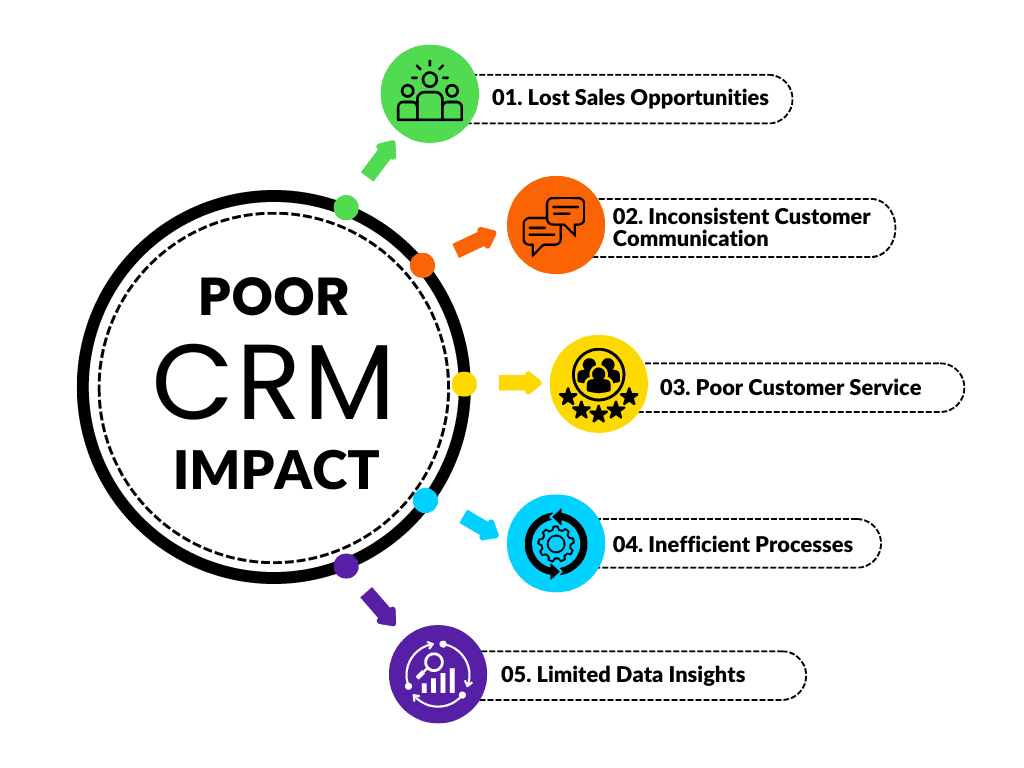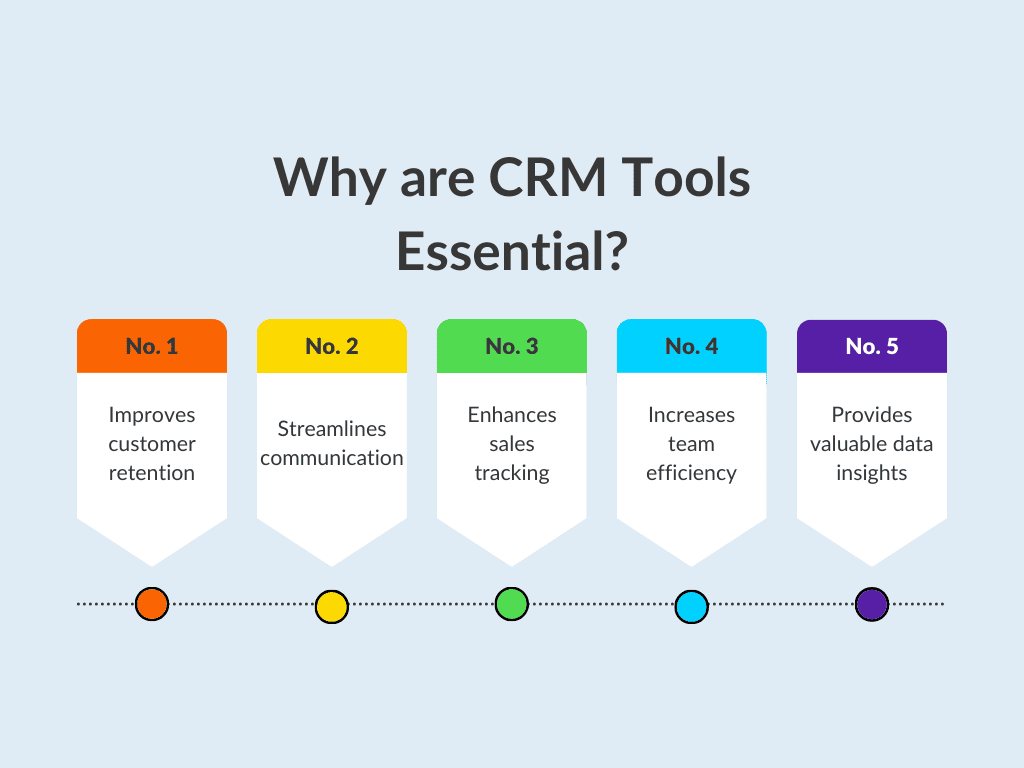As a business owner, managing your customers well is essential for success. But when things go wrong—customers feel ignored, communication breaks down, or you miss opportunities—this can hurt your business.
Let’s look at common problems caused by poor customer management and how using a CRM (Customer Relationship Management) system can fix each one.

Missed Opportunities
It’s easy to lose track of leads and customers when you’re trying to manage everything manually. Without a clear system, you might forget to follow up with a potential customer or miss a chance to recommend a new product to someone who’s already bought from you. Missed conversions are one of the most significant costs of a poor customer experience.
How a CRM Helps:
A CRM keeps track of all your customers and leads in one place. It reminds you to follow up with people at the right time and helps you send personalized messages. This way, you won’t miss out on those potential sales.
Disorganized Information
When customer details are spread across emails, sticky notes, and spreadsheets, it’s hard to stay organized. You may forget important details, like a customer’s previous purchase or preferences, which can lead to frustration for you and the customer.
How a CRM Helps:
A CRM stores all customer information in one easy-to-access place. It keeps track of things like contact details, order history, and notes from past conversations. Tagging is utilized to filter your customers further and speak to them in a more personalized tone. These tools help you deliver better service and keep your business running smoothly.
Inconsistent Communication
When communication is unorganized, customers may feel like you’re ignoring them or that your messages are irrelevant or worse, annoying. Without a plan in place, some customers might get too many messages, while others don’t hear from you at all.
How a CRM Helps:
A CRM lets you organize and automate your communication. You can send personalized emails to customers based on their interests or past purchases through the system. You can also schedule follow-ups, so no one feels forgotten. This healthy communication helps keep your customers engaged and happy.
Customer Defection
It’s much easier to keep an existing customer than to find a new one, but poor customer experience will make people consider their options. If customers feel like they’re not getting good service or being appreciated, they’ll go elsewhere.
How a CRM Helps:
A CRM helps you build stronger relationships by keeping track of each customer’s preferences and history. You can create loyalty programs, offer special discounts, or send thank-you messages. This type of personalization helps a customer feel valued and encourages them to keep coming back.
Wasted Time
Managing customer information manually—using spreadsheets, emails, or paper records—can take a lot of time and create quite a mess. Simple tasks like sending follow-up emails or tracking orders become time-consuming, and mistakes are more likely to happen.
How a CRM Helps:
A CRM automates many tasks. For example, it can automatically send follow-up emails or remind you when to reach out to a customer. Automations will save you time and let you focus on growing your business instead of getting bogged down in repetitive tasks.
Inconsistent Experience
When customer information is scattered, providing a consistent experience is hard. One team member might not know what another has already discussed with the customer, leading to confusion and a lack of personal touch. The customer journey should be as consistent as your brand.
How a CRM Helps:
With a CRM, all your team members can see a customer’s entire history, including past interactions and purchases. That tracking allows everyone to deliver a seamless, personalized experience, no matter who the customer talks to.
Poor Lead Management
Leads are potential customers, but if you don’t have an organized way to track them, you might lose touch before they make a purchase. Forgetting to follow up or missing key details about what they’re interested in can result in lost sales.
How a CRM Helps:
A CRM helps you track every lead and move them through the sales process. You can set reminders to follow up, see where each lead is in your pipeline, and ensure no opportunity slips away.
Clarity on Customer Behavior
If you don’t track how customers interact with your business, you won’t know what’s working and what’s not. You might miss significant trends, like which products are most popular or why customers are leaving.
How a CRM Helps:
A CRM collects data on customer behavior, like what they’re buying and how they’re interacting with your business. You can use this information to improve your marketing, offer better products, and make smarter business decisions.
Inefficient Employees
If your team has to spend too much time looking for customer information or dealing with messy processes, they’ll get frustrated and spend precious time that could be focused on better tasks for the business. Inefficiencies can slow down productivity and lead to mistakes when interacting with customers.
How a CRM Helps:
A CRM makes it easy for your team to find customer information and complete tasks efficiently. Automations and tagging features can take this even further. These tools reduce the need for manual work, which keeps your team happy and ensures that they can focus on delivering excellent service.
Unhappy Customers
Customers who feel ignored, experience delays, or don’t get personalized service are less likely to return. Unhappy customers might also leave negative reviews, hurting your business’s reputation.
How a CRM Helps:
A CRM helps you provide fast, personalized service. You can track customer requests, follow up quickly, and offer tailored recommendations based on their past purchases. This personal attention keeps customers satisfied and more likely to return.

Final Thoughts: Why a CRM Is Essential
Poor customer management can lead to lost sales, unhappy customers, and wasted time. However, a CRM system solves these problems by organizing customer information, automating tasks, and ensuring you never miss an opportunity. A CRM is a wise investment if you want to improve your customer relationships and grow your business.
Are you ready to see how a CRM can transform your business? Check out Quicknection, the CRM built for small businesses like yours, and check out our Services Page to find out how QBR can do even more to help your business!
